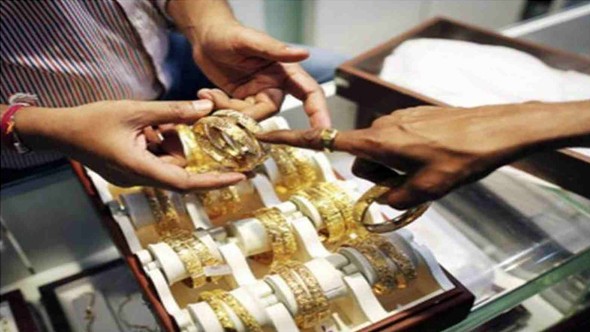China saw a 39-percent drop in jewelry consumption and a 30-percent fall in bar and coin investment, with the combined demand going down 37 percent, according to a World Gold Council (WGC) report.
India, on the other hand, saw a 39-percent surge in its purchase of gold, buying up to 225.1 tons on account of the boost from the 60-percent rise in jewelry demand for the wedding season.
Gold is customarily taken as an essential part of a bride's dowry in India and is considered auspicious as a gift. India thus once more takes the lead from China as the world's leading gold consumer.
The slump in demand for gold in China is a result of a retreat to "rational consumption," especially after President Xi Jinping stressed the need for a "new normal" in the pace of economic growth, explained Albert Cheng, managing director for the Far East at the WGC.
Also, the drop in the price of gold may have affected the confidence of buyers. "In China, where investors are more price-savvy," he observed, this could have been reason enough for them to stay out of the market for now.
However, Cheng said that he is confident that the "demand for gold investment will pick up in the long term."
The WGC's projected gold demand in China for 2014 has been lowered from the original forecast of 1,000 tons to about 850 to 950 tons, as the growth rate of the world's second-largest economy continues to slow down to a more normal pace.
Last year, China accounted for 28 percent of the world's total gold consumption, after having bought 1,065.8 tons in what seemed like a frenzied surge in getting hold of the precious metal.
Gold prices crashed 28 percent last year, and dropped another 3.3 percent this year. The WGC, however, expects that the demand for gold and, consequently prices, will finally stabilize this year.
WGC's head of market intelligence Alistair Hewitt said: "We expect gold demand to be largely similar to last year, at between 4,000-4,100 tons."
Total gold demand fell 2 percent to 929 tons in the third quarter of 2014, the lowest in nearly five years, according to the WGC.



























